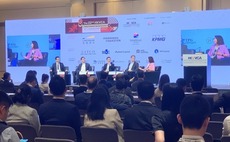
Secondary buyouts: Second time lucky?
PE secondary buyouts are becoming more accepted in Asia as GPs increasingly look to other fund managers for exit opportunities
Navis Capital Partners never really wanted to sell Trimco. Over the course of nearly seven years, the Hong Kong-headquartered garment label manufacturer proved itself to be a consistent, cash generative operator that expanded seamlessly into new markets. Navis is said to have raised the possibility with its LP advisory committee of using a later fund to take out the existing position.
As it turned out, the GP exited Trimco to Partners Group in 2012. It generated around $111.4 million from the investment for a 10x multiple. Navis also lined up a bolt-on acquisition in the UK that was expected to nearly double Trimco's revenues. Partners Group continued to drive expansion and last week announced it would sell the asset to Affinity Equity Partners for $520 million. It is set for a 3.4x return.
Trade sales to strategic players are the traditional mode of exit for Navis, but on three occasions now it has been one of three consecutive PE owners of a business. In addition to Trimco, Guardian Early Learning was bought from Wolseley Private Equity and later exited to Partners Group, while after-market car services provider Worldmark went from RMB Capital Partners to Navis to Quadrant Private Equity. The latter two companies are both based in Australia.
To a certain extent, this shouldn't be surprising. Navis targets middle-market control deals primarily in Southeast Asia and Australia. Other financial sponsors are logical touchpoints when looking for buyouts or exits. At the same time Navis is indicative of a wider trend: the evolution of the secondary buyout in Asia. These transactions are nowhere near as common as in Europe and the US – where they account for 25-30% of overall exits – but they are becoming more prevalent.
Of the approximately 590 private equity exits in Asia last year, 70 are classified by AVCJ Research as sales to other financial sponsors. About 25 were buyouts, trailing the record high of 42 posted in 2016. That marked the end of a five-year streak in which the number of deals topped 35, having never previously passed 30 in any single 12-month period.
While the data suggest a reasonably consistent number of secondary buyouts over the past seven years, they capture a broad range of transactions. In 2017, these included the sale of Customer Relation Telemarketing by Advantage Partners to Integral Corporation (a transaction between mid-market GPs in Japan) to the privatization of Global Logistic Properties (in which a private equity consortium took out major shareholder GIC Private).
Probe beneath the headline numbers, however, and several trends emerge. Of the 18 exits announced so far in 2018, four are secondary buyouts and two of these involve pan-regional or global GPs: Affinity's purchase of Trimco and Permira's acquisition of Australia-based I-Med from EQT Partners. At least seven transactions fit the same profile in each of 2015, 2016 and 2017 – more than in any previous year.
Some of these deals are much like the Navis-Partners Group situations: a mid-size PE firm has backed a portfolio company to the extent that its resources or fund life allow, creating an opportunity for a larger peer to come in. The investment rationale might include scaling up a business even further – and introducing the best practices required to achieve this – ahead of an IPO or expanding into new geographies. Others are transfers of assets between GPs of similar size. Korea-based ADT, which The Carlyle Group is currently selling, could fall into this category.
LPs dislike the idea of assets being passed from one GP to another when the underlying motivation appears to be timing rather than the creation of additional value, particularly if they are invested in both funds participating in a transaction. But secondary buyouts of all descriptions are still likely to proliferate in Asia. This is simply a function of a market in which the growth in the number of large-cap deals is arguably not keeping pace with the expanding fund size of pan-regional and global managers operating in the region.
Latest News
Asian GPs slow implementation of ESG policies - survey
Asia-based private equity firms are assigning more dedicated resources to environment, social, and governance (ESG) programmes, but policy changes have slowed in the past 12 months, in part due to concerns raised internally and by LPs, according to a...
Singapore fintech start-up LXA gets $10m seed round
New Enterprise Associates (NEA) has led a USD 10m seed round for Singapore’s LXA, a financial technology start-up launched by a former Asia senior executive at The Blackstone Group.
India's InCred announces $60m round, claims unicorn status
Indian non-bank lender InCred Financial Services said it has received INR 5bn (USD 60m) at a valuation of at least USD 1bn from unnamed investors including “a global private equity fund.”
Insight leads $50m round for Australia's Roller
Insight Partners has led a USD 50m round for Australia’s Roller, a venue management software provider specializing in family fun parks.







